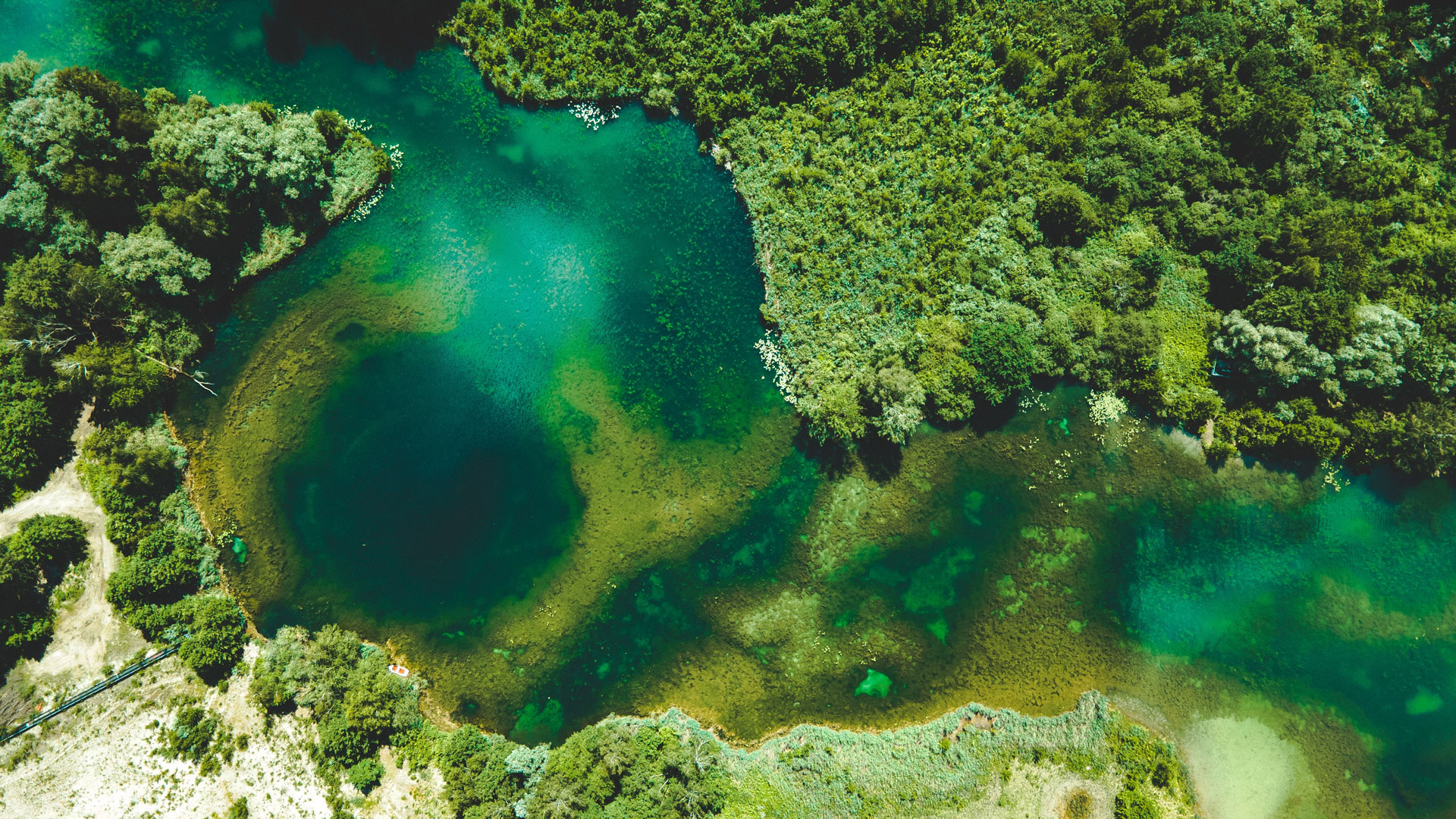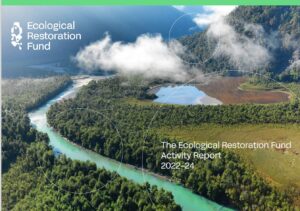About

School of fish – Cultura Creative RF / Alamy Stock Photo.
Healthy ecosystems are the foundation of all life on Earth, yet they face accelerating threats from human activity. Biodiversity is declining at an alarming rate due to land and sea use changes, resource exploitation, climate change, pollution, and the spread of invasive species. Human activity has significantly altered three-quarters of the Earth’s land and two-thirds of its marine environment, with a million animal and plant species now threatened with extinction. There is still time to act, but it must be now – with scale and pace. Protecting and conserving threatened ecosystems, including restoring degraded ones, is critical to ensuring a healthy planet and human well-being.
As a dedicated grant-maker, we support evidence-based solutions which create lasting benefits for both people and the planet. We fund practical initiatives that not only protect biodiversity and restore land and seascapes, but also create dynamic economic, social, and cultural opportunities for local communities, particularly indigenous peoples. We also support effective and enforceable laws and policies that safeguard critical ecosystems, land, and seascapes for the long term.
We aim to build long-term partnerships with those we support and help scale the efforts of locally rooted, impact-driven organisations around the world. We align our work with global commitments such as the UN Convention on Biological Diversity’s Kunming-Montreal Global Biodiversity Framework and the ambitions set out by international initiatives such as the UN Decade of Ecosystem Restoration.
“We are the last generation that can prevent irreparable damage to our planet”
María Fernanda Espinosa Garcés, General Assembly President

Lake and trees – Pascal Scholl, Unsplash.
A note from our Chair & Founder
Daniel Hotz, Chair & Founder, ECOLOGICAL RESTORATION FUND
When I think of nature, I don’t just think of the ecosystems – the landscapes and species that we share the planet with – I think of the air we breathe, the food we eat, the water we depend on, and the stability of our societies. Nature is not separate from us. It is us. And yet, the natural world is in crisis.
Ecosystems, as David Quammen writes, are like Persian carpets. Cut them into tiny squares, and you don’t get smaller carpets – you get scraps. Fragmented and fraying, these pieces can no longer function as a whole. Across the planet, forests are vanishing, soils are eroding, oceans are suffocating, and species are disappearing faster than at any point in recorded history. These are not isolated tragedies; they are signs that the very systems sustaining life are under threat. Pollution, climate change, unsustainable agriculture and industrial expansion are driving us toward collapse.
Yet there is hope.
We now know that when biodiversity is allowed to thrive, the benefits ripple outward. Healthy ecosystems are powerful allies in solving humanity’s most urgent challenges: clean water, food security, disease prevention, climate resilience, even peace and prosperity. In fact, restoring nature may be one of the most effective ways to build a more equitable, sustainable world.
At the Ecological Restoration Fund we believe that nature needs support and space to recover, regenerate, and thrive. However, our work goes beyond conservation, protection and regeneration: it’s also about building a future where people and wild nature coexist, and where communities lead the way in restoring the richness of life around them.
Our team
-
Trustees
-
Daniel Hotz – Chair and Founder
After completing his masters degree in Sociology at the University of Edinburgh, Daniel Hotz became increasingly interested in well-directed philanthropic funding as a means to provide the most flexible capital and support for civil society.
-
Dr. Sigrid Rausing – Trustee
Founder of the Sigrid Rausing Trust, which supports human rights in repressive and transitional countries, and a range of other causes, including conservation.
-
Dr. Lisbet Rausing – Trustee
Co-founder of Arcadia Fund. Lisbet did her BA at UC Berkeley and her PhD at Harvard University, where she was a lecturer and assistant professor in the history of science.
-
-
Team
-
Lenke Bálint – Executive Director
Lenke supports the Chair and Board of Trustees in strategic planning and governance and she is responsible for overseeing all of ERF’s grants, programmes and activities.
-
Olivia Couchman – Grants Director
Olivia develops and manages individual grants, undertaking analyses and evaluations as well as planning and reporting on grants.
-
Will Steadman – Grants Director
Will develops and manages individual grants, undertaking analyses and evaluations as well as planning and reporting on grants.
-
Mariela Dellagiovanna – Grants & Operations Manager
Mariela coordinates the operations at ERF, including supporting the development of the grantmaking systems and processes.
-
Emma McIntosh – Advisor
Emma supports ERF’s team with programme development and the implementation of ERF’s grant-making strategy. She is a conservation scientist with a particular interest in marine protection and restoration.
-
Olivia Eckersley – Communications
Olivia oversees our communications, with a focus on updates on our grantee partners and their work. Olivia is also the Communications Officer at our sister organisation, the Sigrid Rausing Trust.
-
Activity Reports
The Ecological Restoration Fund saw some remarkable growth in its first two years, from its launch in 2022 to the end of 2024. During this time, ERF granted £46.35 million to 47 organisations across 29 countries worldwide.
Please see our first ERF Activity report, which highlights some of the transformative work these organisations are leading. Their projects are delivering long-term benefits for nature, people and climate.
We extend our deepest gratitude to all our partners for their unwavering commitment to environmental advocacy and litigation, ecosystem protection, species reintroductions, and efforts to rewild landscapes and seascapes.
